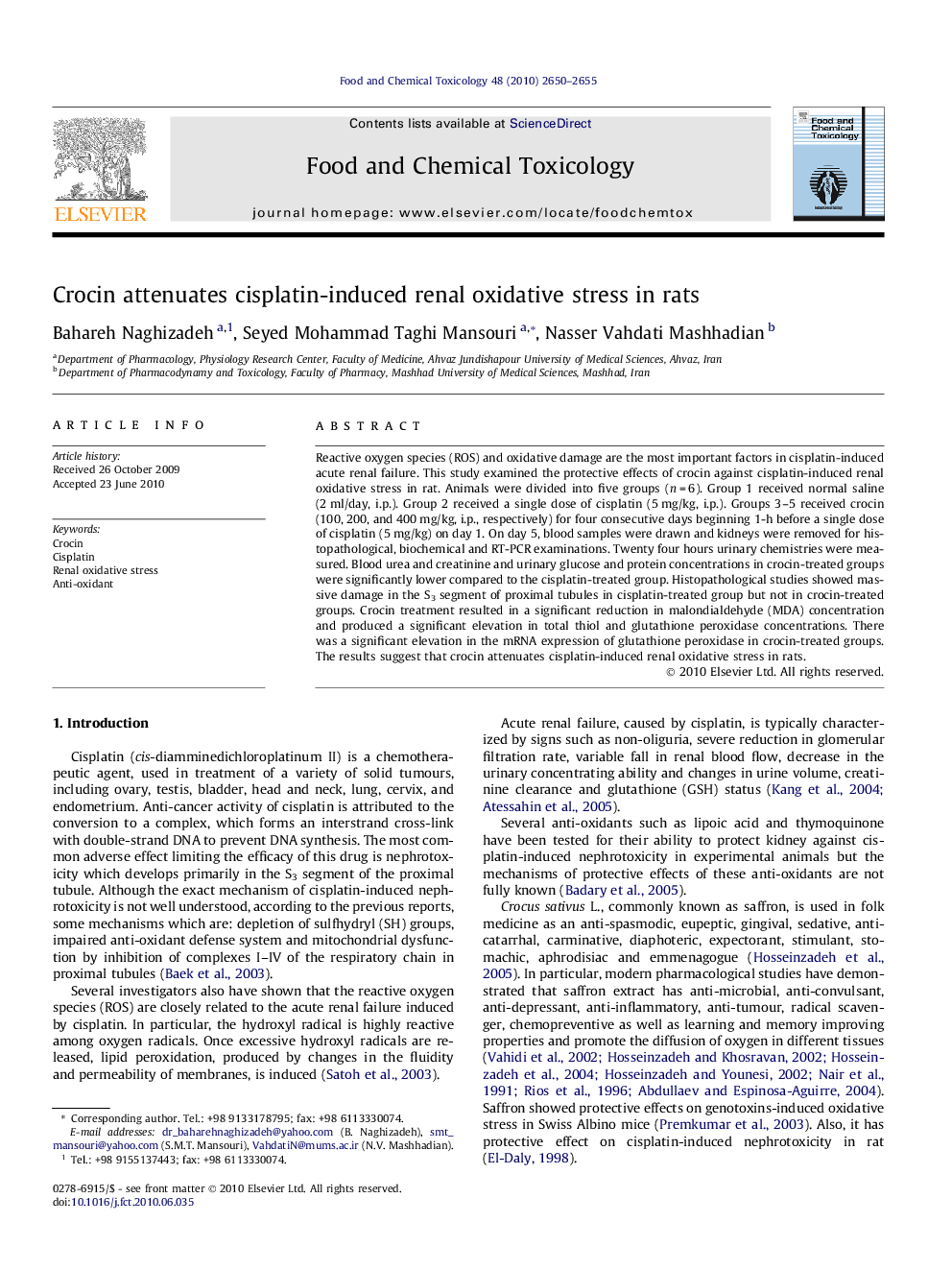| Article ID | Journal | Published Year | Pages | File Type |
|---|---|---|---|---|
| 2585569 | Food and Chemical Toxicology | 2010 | 6 Pages |
Reactive oxygen species (ROS) and oxidative damage are the most important factors in cisplatin-induced acute renal failure. This study examined the protective effects of crocin against cisplatin-induced renal oxidative stress in rat. Animals were divided into five groups (n = 6). Group 1 received normal saline (2 ml/day, i.p.). Group 2 received a single dose of cisplatin (5 mg/kg, i.p.). Groups 3–5 received crocin (100, 200, and 400 mg/kg, i.p., respectively) for four consecutive days beginning 1-h before a single dose of cisplatin (5 mg/kg) on day 1. On day 5, blood samples were drawn and kidneys were removed for histopathological, biochemical and RT-PCR examinations. Twenty four hours urinary chemistries were measured. Blood urea and creatinine and urinary glucose and protein concentrations in crocin-treated groups were significantly lower compared to the cisplatin-treated group. Histopathological studies showed massive damage in the S3 segment of proximal tubules in cisplatin-treated group but not in crocin-treated groups. Crocin treatment resulted in a significant reduction in malondialdehyde (MDA) concentration and produced a significant elevation in total thiol and glutathione peroxidase concentrations. There was a significant elevation in the mRNA expression of glutathione peroxidase in crocin-treated groups. The results suggest that crocin attenuates cisplatin-induced renal oxidative stress in rats.
